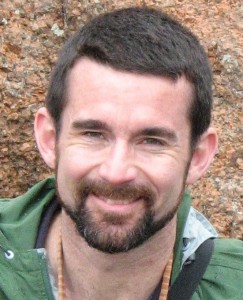 Many thanks to Anita Jain for reporting on the “Overdiagnosis” session at the Cochrane Colloquium—I wish I could have been there.
Many thanks to Anita Jain for reporting on the “Overdiagnosis” session at the Cochrane Colloquium—I wish I could have been there.
The suspicion that overdiagnosis (or at least over testing) is driven in part by the quest for certainty, is corroborated by an implementation study of the Vancouver chest pain rule. When the Vancouver chest pain rule was implemented as a triage protocol, the number of patients presenting for emergency care of acute chest pain who could subsequently be discharged early for outpatient follow-up was almost doubled.
Thus, rational use of a clinical prediction rule, rather than testing based on convention or habit, allowed for equivalent care with less testing and lower utilization of resources. Put another way, providing a valid mechanism to reach a level of diagnostic certainty can also help reduce over utilization.
Unfortunately, the promotion of rational testing may be undermined by other factors, including who owns the testing. When talk of the “profit motive” in medicine arises, it is easy to blame industry or even “corporate medicine,” but the problem may lie with us as doctors as well.
It turns out that the more equipment we own, the more we are likely to use it – a 2004 article in the Journal of the American College of Radiology estimated that self referral for imaging by non-radiologists cost the US Medicare system at least $16 billion every year (and that was 10 years ago). So, “if we own it, we will use it”—how often have you done a test “because it was there,” even though in the end it made no difference to your management? This is not to say that all self referral for in office imaging (or other investigations) is purely out of avarice or greed, but the easier a test is to obtain, the more likely we are to do it—even if, in the end, it makes no difference to our clinical decisions.
Fundamentally, though, both of these drivers of overdiagnosis and over testing have to do with a common underlying theme: dealing with uncertainty. Anita concluded with the story of “a brave young doctor (who) shared how uncomfortable the session had made him feel . . . ” because throughout his training, “the focus had always been on picking up the signs of disease and reaching a diagnosis.” A change in methods or philosophy or paradigm is bound to make one uncomfortable, as it may challenge one’s basic epistemology.
In an interesting 2009 study, Trotter and colleagues found that, “among primary care physicians, a biopsychosocial epistemology is associated with less stress reactions to uncertainty, and a biomedical epistemology is associated with more stress reactions to uncertainty.” In a subsequent study with medical students, they found that the third year student (i.e. the beginning of clinical work in US medical training) “is an opportune time for medical educators to help shape and develop students’ medical epistemology and stress reactions to uncertainty.”
In short, it appears that the more well rounded we are, the better equipped we may be to deal with the tensions of uncertainty, possibility, and partial knowing—instead of pursuing more and more detail that may add little or no benefit to our patients’ care.
How does one promote a more “biopsychosocial” epistemology? How does one promote increased capacity for dealing with uncertainty? To paraphrase Shakespeare, “That is the question!”
Several blogs have recently promoted the place of literature in medicine, from David Payne’s “Books for the incurably curious” to Suchita Shah’s exploration of why we need literature in medicine. Cross cultural experiences, promotion of diversity in the workplace or the training setting, and active engagement of patient perspectives are other avenues that may hold promise for promoting an expanded, more biopsychosocial epistemology, with better tolerance for and appreciation of making decisions in the face of uncertainty.
To again paraphrase Shakespeare: “There are more things in Heaven and Earth, Horatio, than are dreamt of in your philosophy.”
William E Cayley Jr practices at the Augusta Family Medicine Clinic; teaches at the Eau Claire Family Medicine Residency; and is a professor at the University of Wisconsin, Department of Family Medicine.
Competing interests: I declare that I have read and understood the BMJ policy on declaration of interests and I have no relevant interests to declare beyond my work as books and media review editor for Family Medicine and my passion for reading.
